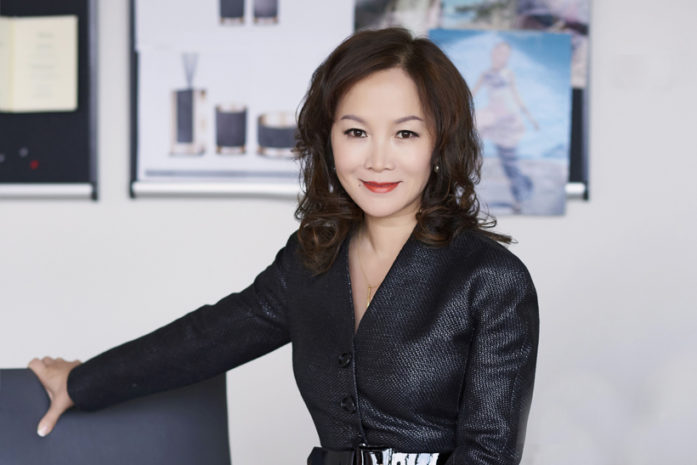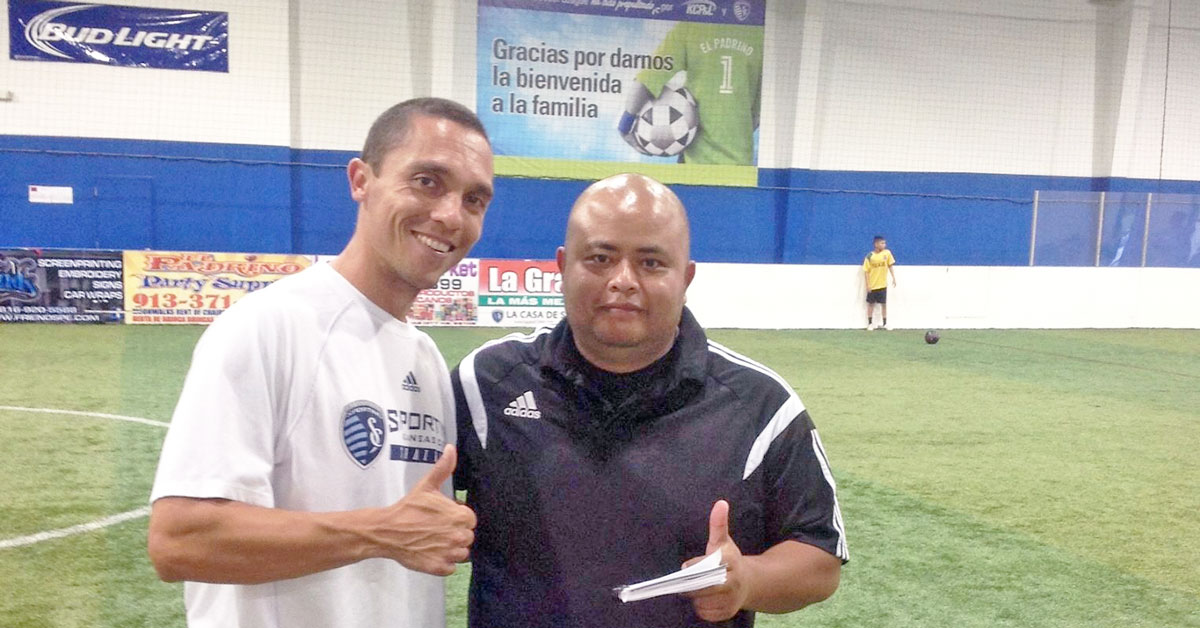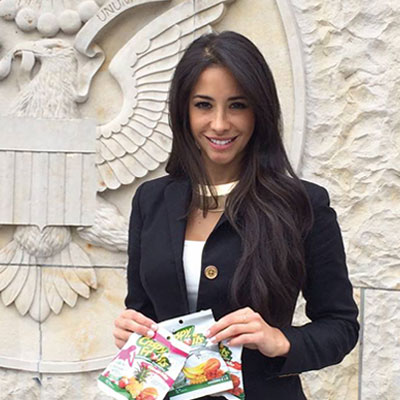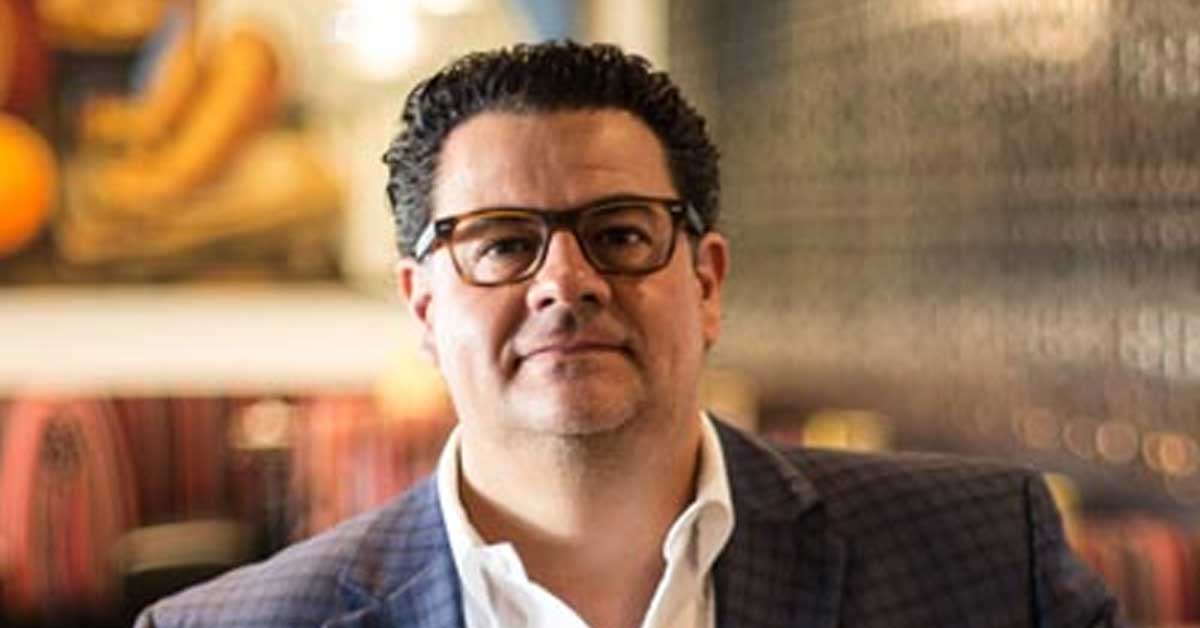March 15, 2022

Cities Index
Immigration is vital to the long-term prosperity of American cities and the U.S. economy. The NAE Cities Index systematically evaluates immigrant integration by measuring local policies and socioeconomic outcomes across the 100 largest cities in the United States. The Index tracks where each city stands in its integration efforts in order to provide insight on how local communities can maximize the potential of their immigrant populations for the well-being of all residents.
Top 10 Cities
The Interactive Index offers a detailed view of each city’s scores across a variety of metrics. Use the feature below to begin exploring the cities with the top 10 scores overall.
In 2011, Chesapeake Bay Candle hit a unique milestone. That was the year the company, which manufactures high-end decorative candles, moved a significant portion of its production operations out of Vietnam and began manufacturing its products in a factory near Maryland’s Eastern Shore.

Photo: Sherri Cunningham / CC BY-SA 2.0
Chesapeake Bay Candle’s co-founder Mei Xu, an immigrant from China, says she decided to move the operations after calculating the rising costs of manufacturing in Asia. “Basically, there was no longer a cost savings due to rising labor and shipping costs overseas,” she says. “I also hoped the factory would provide badly needed blue-collar jobs in Baltimore.”
I believe we stand to gain from people like me coming here from other countries. We are here because we want to get things done, and we want to make a difference by working hard.
The factory, located just outside of Glen Burnie, Md., now employs 80 people. The company’s headquarters, located in Rockville, Md., has another 50 employees working in design, fragrance development, accounting, and other business divisions. Chesapeake Bay Candle employees enjoy good benefits, including retirement plans and healthcare coverage. Working hours at the factory are set up in a way that lets parents pick up their kids from school at 3:30 p.m. “We have low turnover in the factory. The morale is high,” says Xu proudly.
These jobs, she says, help stimulate the local economy, as Chesapeake Bay Candle’s workers can afford a life that is solidly middle-class. “They have a television in every room and a computer for every child. They’re supporting a lot of businesses,” says Xu, who sold the brand for $75 million in 2017 but continues to run the company as its CEO.
As an immigrant who came to the United States and created a successful business, Xu is in good company. In 2016, 40.2 percent of Fortune 500 firms had at least one founder who was either an immigrant or the child of immigrants. These companies make enormous contributions to the United States and the global economy writ large, generating jobs and revenue long after their visionaries retire or move on.
Xu came to United States in the early 1990s to study journalism at the University of Maryland and later got a job at a New York City medical-device exporter. Her then husband and Chesapeake Bay Candle co-founder, David Wang, came with a J-2 visa and worked for a geophysics government contractor.
The inspiration for Chesapeake Bay Candle came one afternoon during Xu’s lunch-break. She was window shopping when she noticed that the clothing in stores like Bloomingdale’s had clean, sophisticated designs but the home furnishings seemed ornate and old-fashioned. “My question was, if someone dressed in a modern way, why would she want to go home to a very traditional grandma apartment? I had been to England and Denmark, and I knew there could be a more contemporary look for the home, but it just wasn’t in the U.S. market yet,” Xu says.
After experimenting with different home-furnishing imports at a wholesale show, Xu realized there was a market for upscale candles with sophisticated color palettes, striking textures and innovate scent blends, like Prosecco Pear and Basil Mint. In 1995, Xu and Wang launched Chesapeake Bay Candle, and the products quickly sold to retailers including Bloomingdale’s, Nordstrom, and Bed, Bath & Beyond.
These days, however, Xu worries about the effect that America’s immigration policy could have on her business. When she and her then husband immigrated here in the 1990s, the process was relatively straightforward. Today, she says that anti-immigration rhetoric as well as bureaucratic hurdles could prevent her from maintaining the workforce she needs; many applicants at the factory near Glen Burnie are immigrants. “Without an influx of immigration, I don’t know if we would be able to fill our factory,” she says. She also recently lost a highly skilled worker who was unable to secure an H1-B visa after a long wait. “It is very disruptive when you train someone and then they have to go back to their home country. You have to start all over again,” Xu says.
Xu would like to see the U.S. immigration system return to a more open and straightforward process. “I believe we stand to gain from people like me coming here from other countries. We are here because we want to get things done, and we want to make a difference by working hard,” she says.
She notes that many other countries do not offer innovators the same level of opportunity. “I’m not sure if I could have made myself a success in China. There are a lot regulatory gray areas there. I’m a very black-and-white person, so it would have been hard. So I’m glad that I took this journey. If you are passionate about something and want to get things done, this is the country for you.”
Raul Villegas had been living in America as an undocumented immigrant for more than 20 years when he decided to build an indoor soccer facility in Kansas City, Kansas. That was in 2013, long before the Deferred Action for Childhood Arrivals program, or DACA, removed the threat of deportation for many undocumented immigrants. To meet his goal, Villegas knew he would have to raise $400,000, not an easy task given that he could have been deported at any time.

Raul Villegas, right
“A lot of people told me not to do it because of my immigration status,” Villegas says. “They thought I was a bit crazy. There wasn’t a certainty that I would pay it back.”
Villegas didn’t listen. “I thought that the kids in this community needed something like this,” he says. “You have to take chances in order to achieve something that you really want.”
I thought that the kids in this community needed something like this. You have to take chances in order to achieve something that you really want.
After two years spent knocking on doors of construction companies, restaurants, and other potential lenders and investors in the Hispanic community, Villegas built a 40,000-square-foot facility. Soccer Nation, as he aptly named it, regularly hosts youth and adult soccer leagues and academies, as well as tournaments drawing players from across the Midwest. The facility, which includes one small and two large soccer fields, is adorned with flags from around the world. The players that come through its doors are a virtual microcosm of the city’s growing immigrant community – including newcomers from 25 nations throughout the Americas, Africa, Asia, and Europe.
Soccer Nation has quickly become a major success. The business has five full-time employees, along with 20 referees. It grosses $500,000 in revenues each year. Villegas funnels the profits into programming for children, paying league dues for inner-city soccer players whose parents struggle to cover the cost of membership.
“We want to give kids a better chance,” Villegas says. “One of our biggest goals is to give our kids tools to play soccer so maybe in the future they can get a scholarship, and get good grades. For a lot of them it will be the first generation to go to college.”
Villegas knows well the powerful influence a team sport can have on a young person. When he was 11 years old, his parents moved the family from a “very poor” town in Mexico to California in search of a better life for their children. They came to the United States in 1990, and lived in South Central Los Angeles.
“I was scared,” says Villegas. “But the first time I went to a park and I saw a soccer ball rolling through and I started playing, I thought maybe it was going to be OK being here. That’s something that I see on the kids’ faces here. They find an escape in soccer and are mixing with the American community, because those kids also play soccer.”
As a young adult, Villegas moved to Kansas City to help his father manage a grocery store. He now owns his own soccer league and apparel store called “El Padrino,” or “Godfather” in Spanish. He wanted to apply for legal immigration status in 2005, but was told he’d have to leave the United States for anywhere from two to 10 years to be eligible – an absence that was out of the question. “My son was about two years old then and my daughter had just been born,” he explains. “I didn’t want to be apart from them.” His wife, who is also from Mexico, has been a U.S. citizen for 20 years, so Villegas stayed and kept applying for residency. It was granted in 2015. In 2020, he’ll be eligible for citizenship.
Villegas says Soccer Nation is his way to give back, to help both immigrants and native Kansas City residents give their children the kind of boost his parents gave him. “A lot of the parents work about 60 to 70 hours a week. They leave their kids at home,” he says. “Most of my coaches, they have to pick every single one of those kids up.”
“I think those kids have a greater chance by playing soccer.”
Jimena Florez started her first business at the age of 8, selling flavored Jell-O powders in straws to her Bogotá classmates. Now she’s the founder of Chaak Healthy Snacks, a socially conscious business that brings nutritional snacks to public school children in Colombia and the United States. Florez employs about 13 people in Colombia and nine in the United States. “We’re a small company, and we’re working with government projects to benefit around 90,000 children in both countries,” she says.
 Florez’s father served as the governor of Casanare, a state in east-central Colombia, and she received her bachelor’s degree in Australia. She learned about environmentally friendly business practices, and returned home to convince the Colombian Ministry of Education to launch a social-enterprise project to teach sustainable agriculture methods to cacao farmers. Florez used the farmers’ produce to create freeze-dried fruit snacks, which became a hit in cities. The project took off, and 6,000 farmers are now enrolled.
Florez’s father served as the governor of Casanare, a state in east-central Colombia, and she received her bachelor’s degree in Australia. She learned about environmentally friendly business practices, and returned home to convince the Colombian Ministry of Education to launch a social-enterprise project to teach sustainable agriculture methods to cacao farmers. Florez used the farmers’ produce to create freeze-dried fruit snacks, which became a hit in cities. The project took off, and 6,000 farmers are now enrolled.
It was fascinating as a social entrepreneur to be in a location where I could do so many things to improve people’s lives.
This success won Florez a spot in the Women’s Entrepreneurship in the Americas (WEAmericas) initiative, a U.S. State Department program that brings Latin American women to the United States. Florez was placed with an incubator, the Rutgers Food Innovation Center, where she launched a U.S. branch of her company. Her goal: Give hundreds of thousands of public school children her snacks for free and track health outcomes, proving the benefits — and cost savings to health insurers — of healthy food. “It was fascinating as a social entrepreneur to be in a location where I could do so many things to improve people’s lives,” Florez says of her two years in New Jersey. A pilot project is now underway in Newark, where some 5,000 schoolchildren receive Florez’s low-sugar, gluten-free brownies and muesli. She is planning to launch programs on a larger scale in other New Jersey districts and in Florida.
In 2015, after Florez met President Barack Obama at a global entrepreneurship event, the president publicly praised her, saying her work would “empower people in ways that empower societies and ultimately empower the world.” The recognition helped Florez secure an O-1 visa, a temporary work visa for individuals with proven extraordinary ability. Without the O-1 visa, however, which is difficult to obtain, it’s unlikely Florez could have launched her business in America at all. The United States lacks a start-up visa. As a result, many promising foreign-born entrepreneurs either abandon their business plan altogether or move to one of a growing number of countries with policies designed to attract and retain foreign talent.
“One of the things you want when you’re creating a business is to have stability,” says Florez, who wishes the U.S. government would establish a visa for entrepreneurs. In January 2017, the Department of Homeland Security finalized a regulatory measure that would give more foreign entrepreneurs a chance to grow their firms in the United States. But that rule has since been delayed and appears on the way to being rescinded. “I’ve always been very confident, because I know I’m doing something great for the country, but if things had been like this in 2015, it’d have been difficult for me to make the choice.”
Ask any Hawaiian about L&L Hawaiian Barbecue, a fast-food chain ubiquitous on the islands and the West Coast, and they can likely tell you about its traditional plate lunches complete with heaping scoops of macaroni salad. What they might not know is the company has more than 200 franchise locations, gross sales of $96 million, and some 2,500 employees, about half of whom were born in America. They may also not be aware that the CEO, Eddie Flores, Jr., was born in Hong Kong and credits his success to American public education.
Flores was born in Hong Kong, where the highly competitive school system often edges out children as they age. Flores, a daydreamer labeled “learning disabled,” was twice held back. “If I had to stay in Hong Kong,” he says, “I never would have finished high school.”
It’s also unlikely he would have received family financing to foster his entrepreneurial drive. Neither his Chinese mother, nor his father, from the Philippines, had received more than a sixth grade education. They struggled to support seven children.
But Flores’ mother was born in Hawaii, paving the family’s path to America. As a U.S. citizen, her minor children were eligible to apply for citizenship immediately, which Flores did upon arrival, at age 16. In the United States, Flores earned a bachelor’s degree in business from the University of Hawaii and a master’s degree in liberal studies from the University of Oklahoma. “In the United States, they don’t eliminate you,” he says. “In America you have an equal opportunity to strive and succeed.”
In the United States, they don’t eliminate you. In America you have an equal opportunity to strive and succeed.
Flores spent two years learning the loan business at a bank before launching his own real estate firm, where he quickly amassed 12 employees and enough savings to buy his mother out of her cashier job; in 1976 he bought her the L&L Drive Inn, a little Honolulu diner, for $26,000. Thirteen years later, when Flores learned her successor had let friends use the L&L name for free, Flores read up on franchising and re-entered the business full-time. Today, the restaurants operate under the name L&L Hawaiian Barbecue.
About half of L&L’s franchise owners are immigrants, many of them former employees. Each restaurant has 10 to 15 workers. The immigrant-owned franchises almost never fail, “because immigrant families usually have everyone working,” Flores says. “Then they hire people.”
Grateful for the opportunities America gave him, Flores helped fund a $1 million university scholarship endowment, raises money for community causes, and finances loans immigrants need to buy a franchise. “If you go to the bank to borrow money and you cannot speak English and you work in a kitchen, make minimum wage, with no credit history, it’s impossible to get a loan,” he says.
Flores wishes that U.S. Immigration authorities could recognize the same financial opportunities immigrants offer. He has overseas investors who want to start an L&L franchise in the States but who can’t get a tourist visa to scout the site, even though they don’t intend to stay and would hire American workers.
“They’d be creating American jobs,” Flores says. “For people who legitimately want to invest, we should make it easier.”
Vicente Del Rio opened his first taquería while studying accounting in Mexico City — so when he came to Los Angeles in 2005 on an investor’s visa, it was only natural for him to start a restaurant serving up food from his homeland. Now his company, Frimex Hospitality Group, has grown to employ 380 people across nine Mexican restaurants in California and Nevada, and has annual sales of $25 million.

Those numbers will go up still further when Del Rio opens his next two eateries, in Las Vegas and Beverly Hills, later this year. “Each time we open a restaurant, we create jobs for 60 or 70 more people,” Del Rio says. “It makes me so happy.”
Each time we open a restaurant, we create jobs for 60 or 70 more people. It makes me so happy.”
It wasn’t easy for Del Rio to achieve that kind of success in a country that wasn’t his own. “It was complicated, because it’s very different than doing business in Mexico,” he says. But Los Angeles proved the best place in the world to go through that process, because of the city’s diversity and its commitment to supporting immigrant-owned businesses.
According to New American Economy’s new Cities Index report, which ranks the most welcoming cities for immigrants across the United States, Los Angeles scores especially highly on Government Leadership and Equitable Access — a sign that local officials are committed to supporting new arrivals and helping would-be entrepreneurs find their feet.
“There are a lot of meetings and forums on how to do business as a foreigner here,” Del Rio says. “Even the Mexican consulate tries to support businesspeople and employees from Mexico. There are all types of services.”
That broad-based network of support makes it possible for immigrants like Del Rio to succeed and build thriving businesses. In fact, according to New American Economy, more than half of Los Angeles’ entrepreneurs are foreign-born, with the city’s Hispanic business owners alone running almost a third of a million enterprises and employing more than 160,000 city residents.
“LA is very multicultural — you find all kinds of people from all over the world coming here to do business,” Del Rio says. “It’s a very great city for businesses.”
Del Rio tries to repay the city by supporting local causes. His restaurants have participated in charity events like the Tacolandia benefit for El Pueblo Park Association, and charity fundraisers for the American Cancer Society. In 2010 Del Rio also co-founded the Taste of Mexico Association, which promotes Mexican culture and cuisine.
Del Rio says that he’s grateful to the city of Los Angeles for welcoming him and helping him turn Frimex Hospitality Group into a thriving and successful business. Municipal leaders have made it clear that they view the city’s diversity as a key competitive strength, and its immigrant entrepreneurs as a powerful driver of economic growth, Del Rio explains.
“Mayor Garcetti has been doing a great job of supporting all the city’s Hispanic communities, along with European immigrants, and Asians, and people from all other cultures,” Del Rio says. “We’re all made to feel very welcome here.”
Compare Cities
How does your city stack up against others in your state? How do your scores compare to sister cities across the country? Use this comparison tool to get a side-by-side look at any cities’ scores.
Get the latest from NAE
Enter your information below to join NAE’s email list. We’ll only send you top-quality insights about immigration plus occasional opportunities to take action or get involved locally.
Thanks for signing up. Please check your email for confirmation.
You will receive occasional emails from NAE. You can unsubscribe at any time.
About NAE
New American Economy is a bipartisan research and advocacy organization fighting for smart federal, state, and local immigration policies that help grow our economy and create jobs for all Americans. More…
The Latest
March 2, 2022
New Report Shows Immigrants in Southwest Kansas Paid Over $192 Million in Taxes and Held More than $595 Million in Spending Power in 2019
February 3, 2022